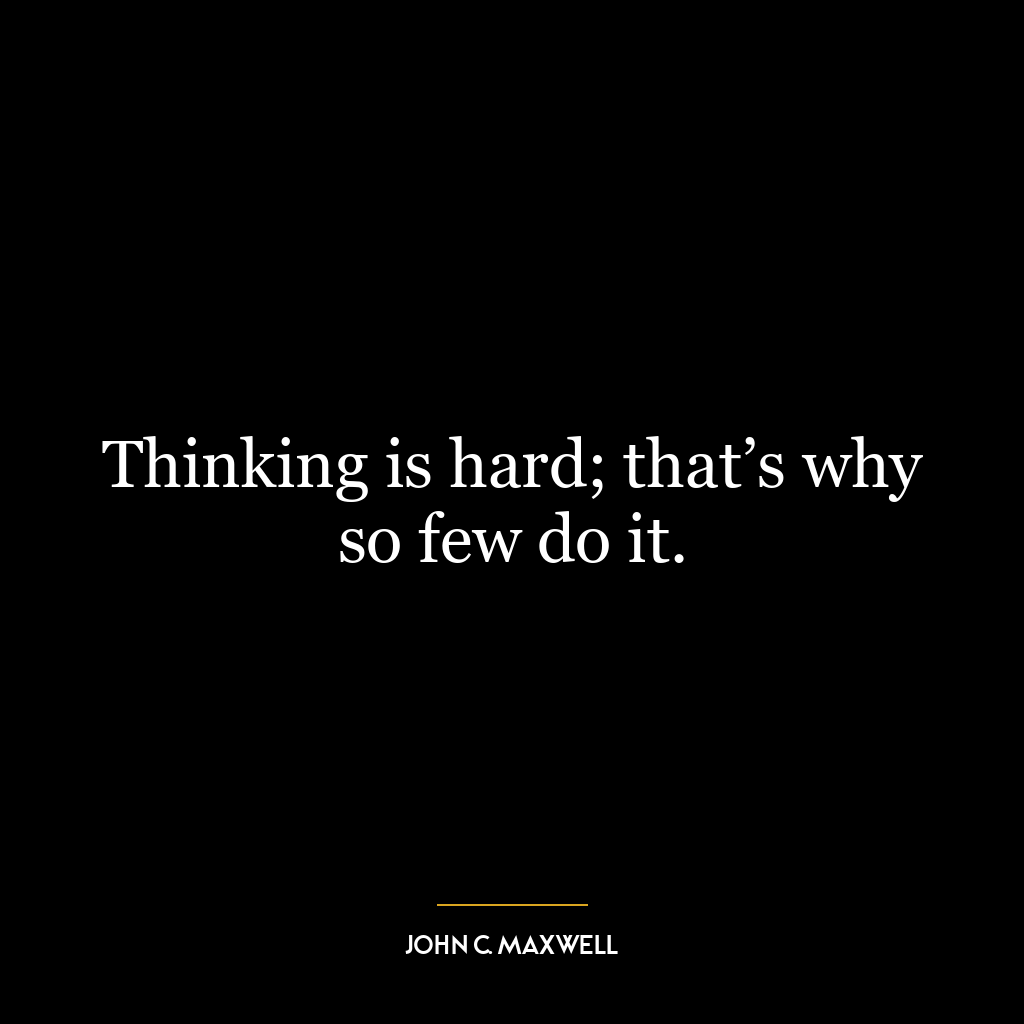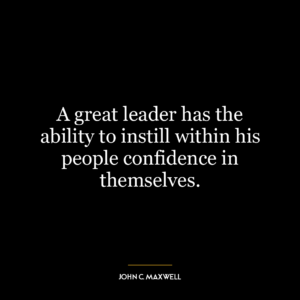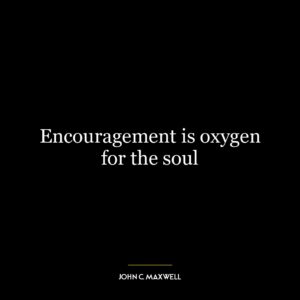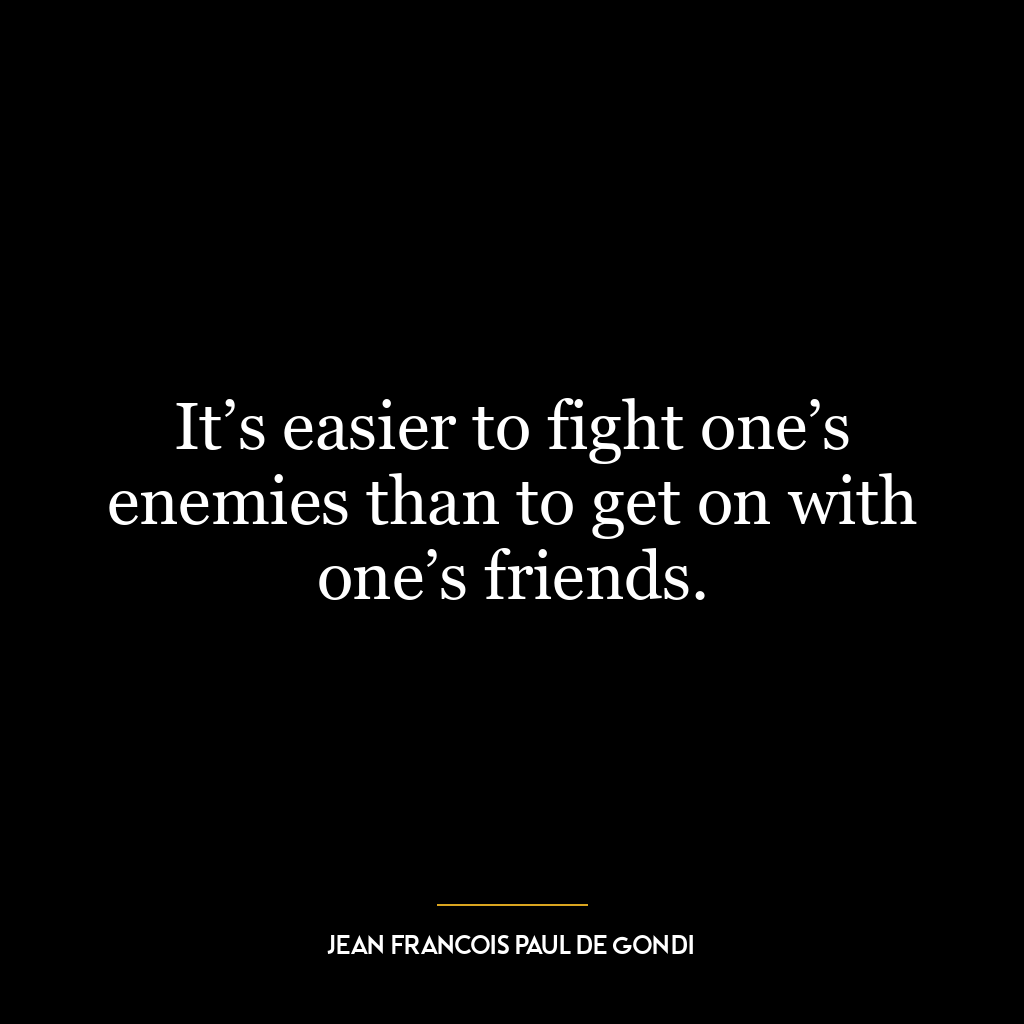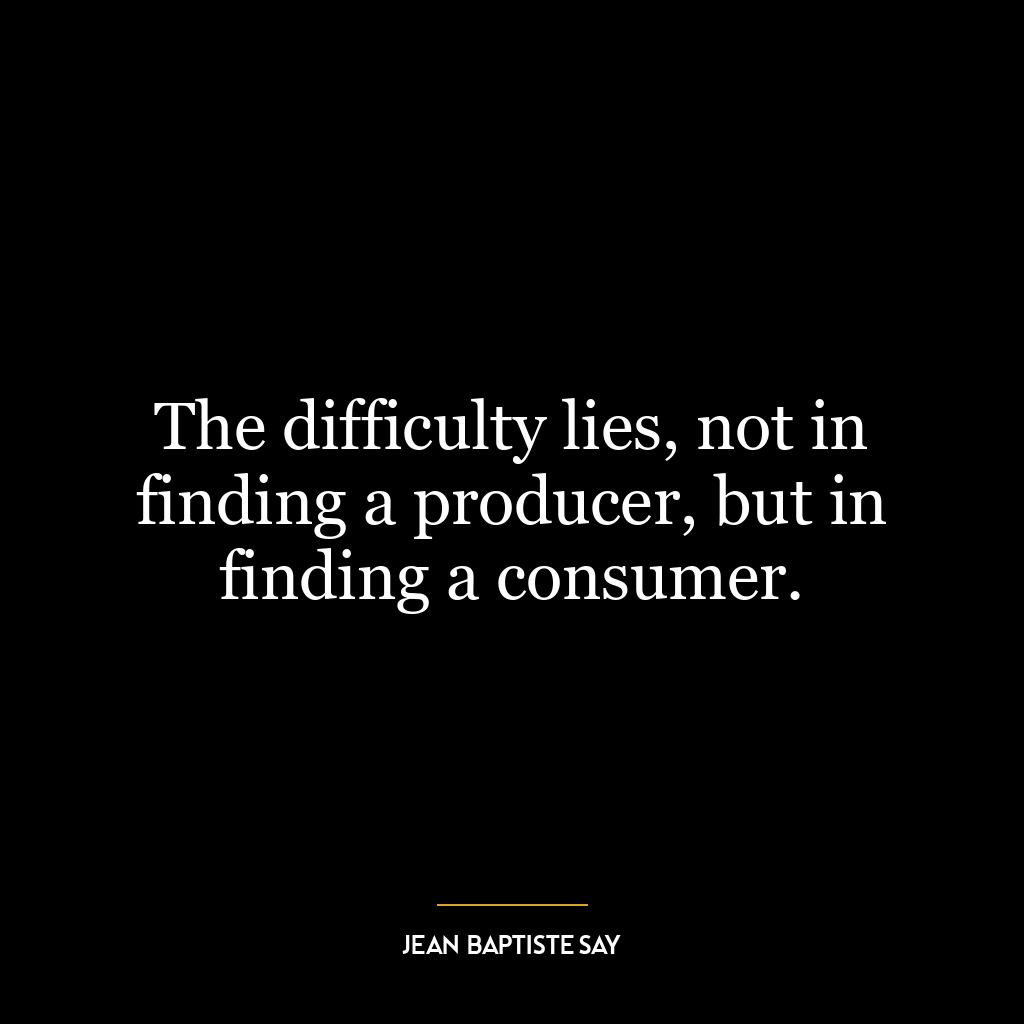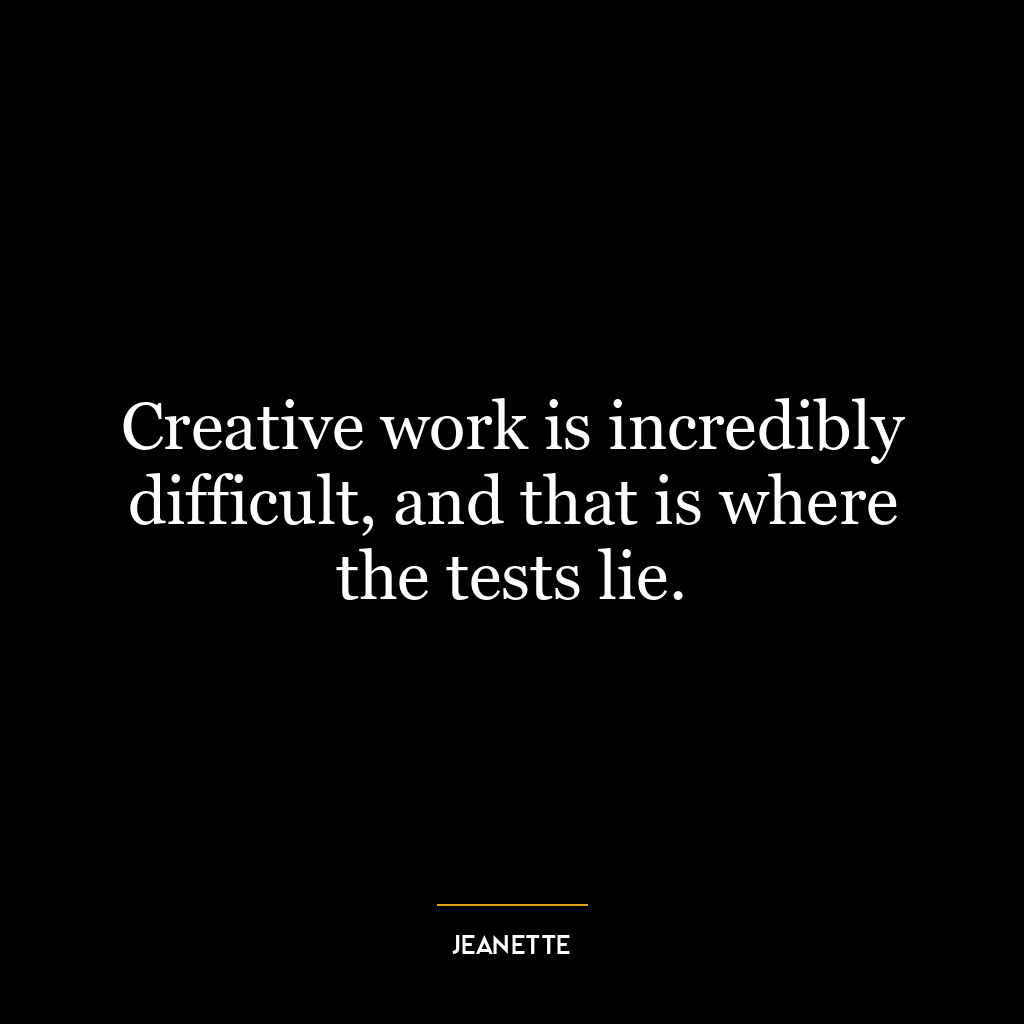The quote, “Thinking is hard; that’s why so few do it,” is a powerful assertion about the human tendency to avoid cognitive effort. It suggests that thinking, in its truest form, is a laborious process that demands time, energy, and focus. But because it’s challenging, many people choose not to engage in deep, critical, or creative thinking.
The ‘hard’ thinking referred to here is not the everyday decision-making or problem-solving that we do. Instead, it’s about the kind of thinking that challenges our beliefs, pushes our boundaries, and forces us to question our assumptions. It’s the thinking that leads to innovation, personal growth, and societal progress. Yet, it’s often easier to accept things as they are, to follow the crowd, or to adhere to established norms and beliefs.
This idea is particularly relevant in today’s world where we are constantly bombarded with information and distractions. The ease of access to information has somehow replaced the need for deep thinking. We tend to accept information at face value, rather than questioning its validity or exploring its implications. We are more likely to follow popular opinion than to form our own, because it’s easier and less time-consuming.
In terms of personal development, this quote is a reminder of the importance of critical thinking and self-reflection. It encourages us to challenge our beliefs and assumptions, to question the status quo, and to strive for intellectual independence. It’s a call to break free from intellectual laziness and to embrace the hard work of thinking. It suggests that personal growth and development is not just about acquiring knowledge or skills, but also about developing the ability to think deeply, critically, and independently.

